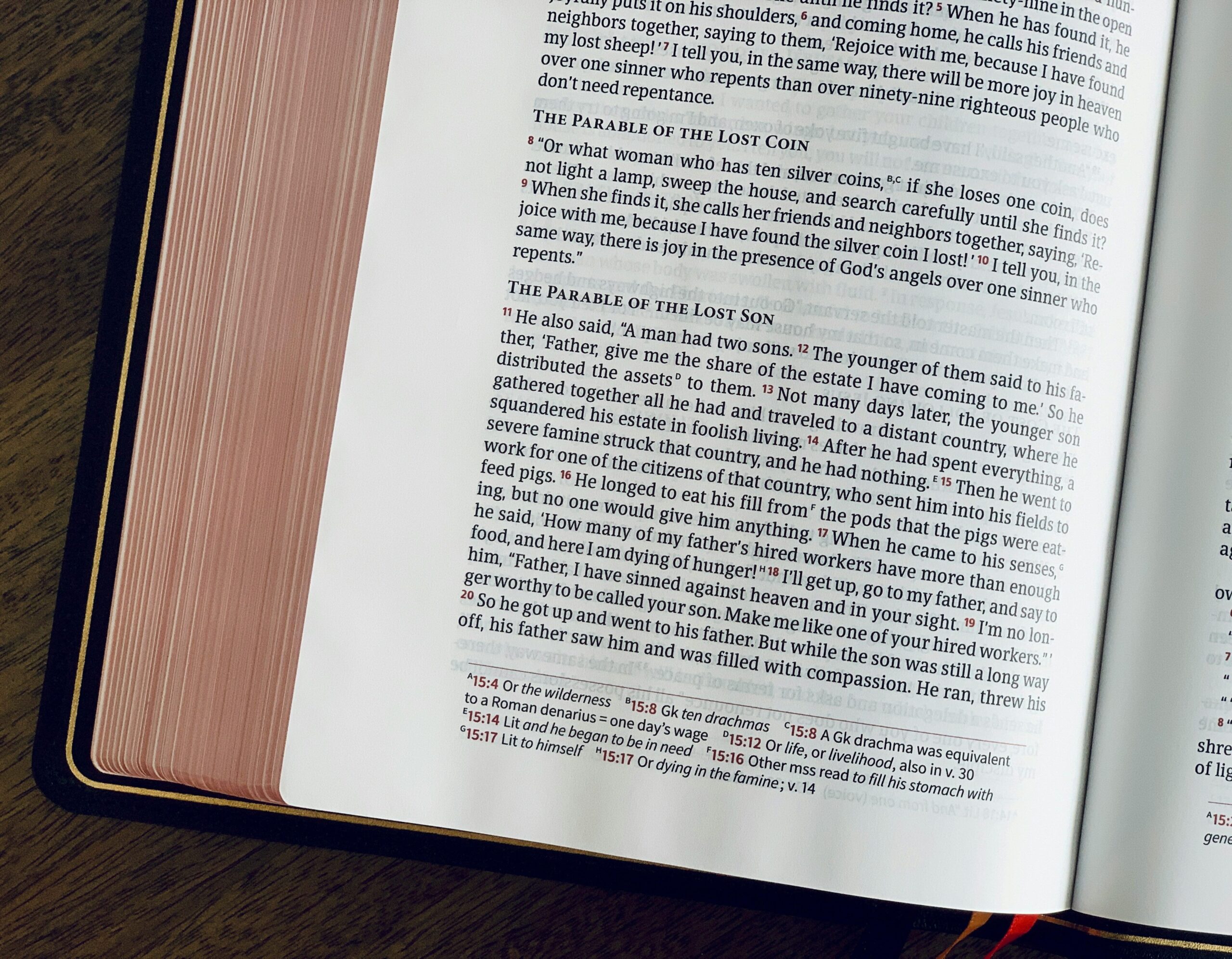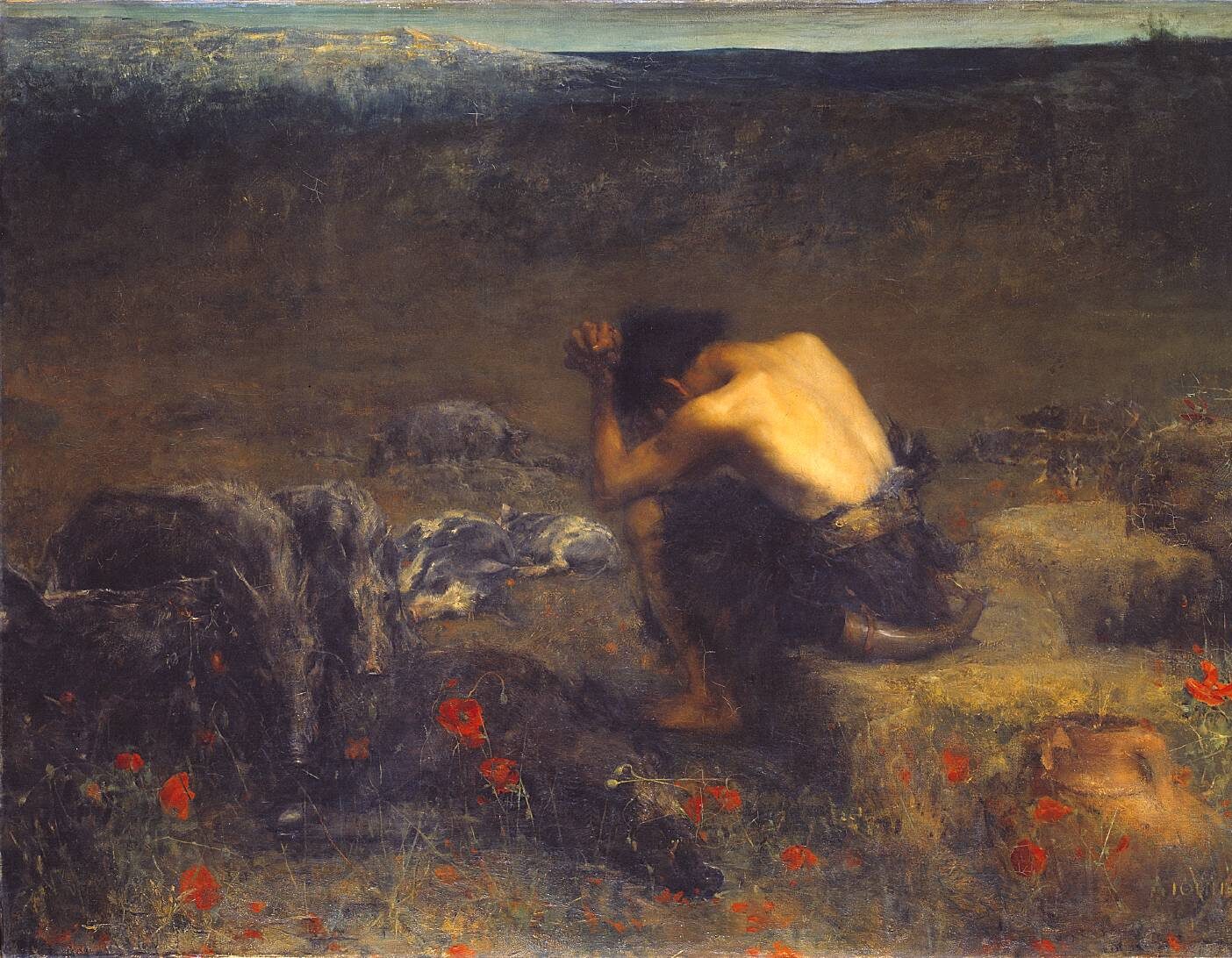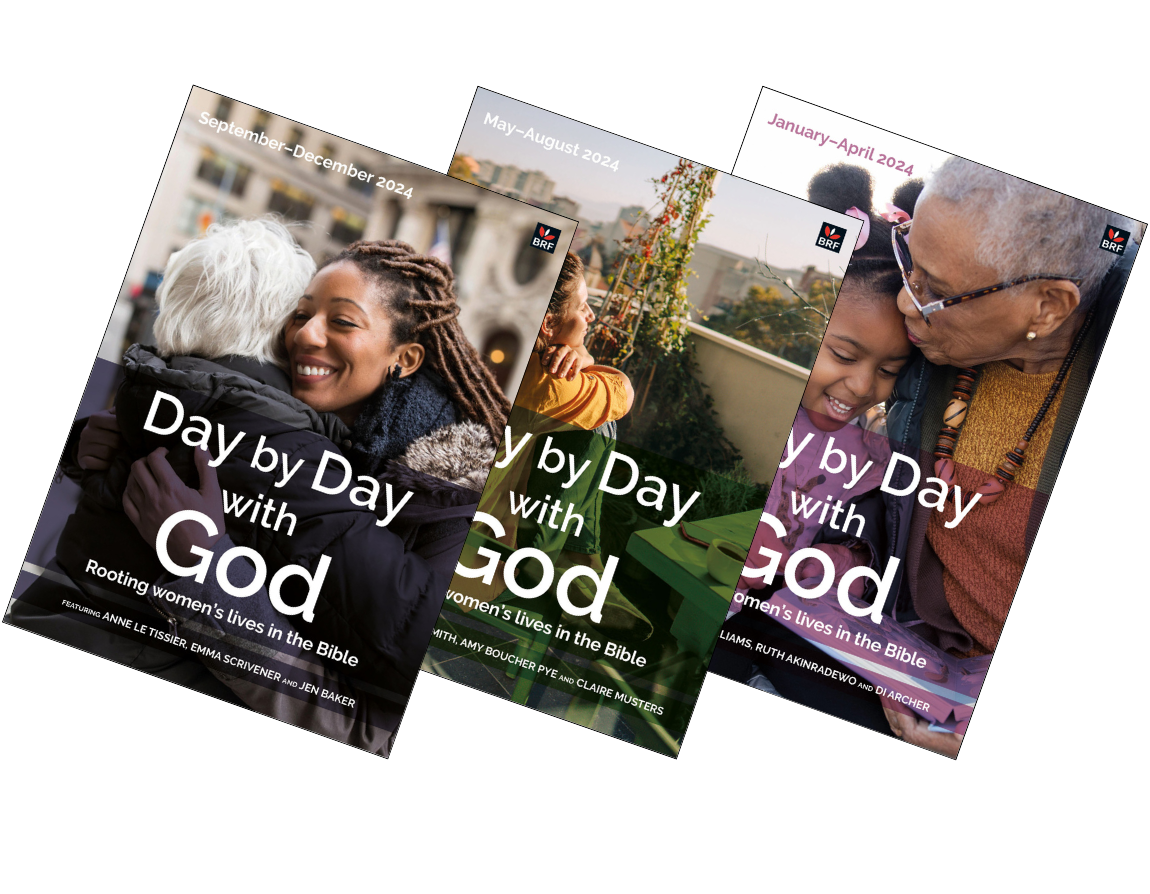In the second of our summer series drawn from the new issues of our Bible reading notes, Hannah Fytche writes about ‘Making the familiar unfamiliar’ in Day by Day with God, September-December 2024.
11 August 2024
Questioning familiar interpretations
Whether you’ve heard it many times or it’s new to you, the story Jesus told of the prodigal son is one to which we can repeatedly return and find something nourishing for our faith. Through parables Jesus invites us to think about who God is, who we are and what God’s kingdom is like. Parables don’t offer answers, but they do offer stories which provoke curiosity and lead us to new insights.
When it comes to familiar parables, it might take a little more work to think our way into new questions. If you’re familiar with the parable of the prodigal son, you might be lulled into thinking you know the insights already – you’ve heard it many times, and you’ve explored it as much as possible.
The youngest son asks for his inheritance, squanders it and so returns home. He represents repentant sinners, those who disobey and return to God. The father, representing God, runs to welcome his wayward son, and shows a love which is so surprisingly forgiving that a feast is thrown for the sinful son. The eldest son is trickier to interpret but surely his anger is misplaced – he should be celebrating his brother’s return. As for other members of the family’s household, such as servants and women, they are simply not present.
I want to question familiar interpretations of this parable, unsettling and challenging our certainties about it. I have been helped in my understanding of this parable by Amy-Jill Levine’s Short Stories by Jesus (Harper Collins, 2014), which is well worth a read if you want to take your questioning beyond this week.
The gift of parables is to offer us stories rather than answers as they take us on a wondering journey closer to who God is and who we are with God.

The gift of parables is to offer us stories rather than answers as they take us on a wondering journey closer to who God is.
Parables don’t have titles
Jesus continued: ‘There was a man who had two sons.’
Luke 15:11
For the whole parable read Luke 15:11–32.
Look at what the parable is called. In most Bibles, it’s titled ‘The parable of the prodigal son’ or ‘The parable of the lost son’. These titles were added by the editors of our English translations. Jesus didn’t announce a title when he told this story, he just ‘continued’ to speak, and the ancient manuscripts of the New Testament also don’t include titles. Titles were added later to help us find our way through the text. Yet as well as helping us find parts of the Bible, titles can shape how we read the Bible.
When we read ‘The parable of the lost son’, we notice how the son is lost – the ways that he’s strayed from home. We might compare him to the coin and the sheep in the other so-called ‘lost’ parables in Luke 15, and that might mistakenly lead us to think that the son is ‘found’ in a similar way to the coin or sheep. Or when we read ‘The parable of the prodigal son’, we might focus especially on how the son is wasteful, risky, reckless.
What might happen if we called it ‘The parable of the found son’, ‘The parable of the heartbroken father’ or ‘The parable of the elder brother’? It might change what we notice as we read the story. New things might be highlighted. Our familiar interpretations might shift and change.
If you had to give this parable a title, what would you call it? Thinking about what strikes you as the main theme recognises that new meaning can come to light. Through your response to the Bible, Jesus continues to speak.
Similarly, when we question our familiar interpretations, Jesus continues to speak. Here’s just one example of an assumption we might question…

What might happen if we called it ‘The parable of the found son’, ‘The parable of the heartbroken father’ or ‘The parable of the elder brother’?
The younger son did not repent
When he came to his senses, he said, ‘How many of my father’s hired servants have food to spare, and here I am starving to death!’
Luke 15:17
At the point of starvation, an idea occurs to the youngest son. Where might he find food? Back at his father’s, of course! There everyone has enough, from hired servants to sons. He imagines he’s lost his father’s favour, so he concocts a plan. He’ll declare his sinful unworthiness and ask for a job.
In Day by Day with God I consider an alternative interpretation of the son – not as sinful, according to Jesus’ listeners’ understanding of sin, but as so unwise that he’s in desperate circumstances. Yet if the son is not sinful, why might he plan to declare that he has sinned ‘against heaven and against [his father]’ when he returns? One answer might reveal itself if we hear the son’s words in a scheming rather than a repentant tone. Might the son be returning not because he’s seen the error of his ways, but because he sees an opportunity for an easy meal back home?
Amy-Jill Levine suggests that Jesus’ listeners might have heard the son’s words as deceptive rather than repentant because of their resonance with Pharaoh’s words in Exodus 10:16, which Jesus’ listeners were likely familiar with: ‘I have sinned against the Lord your God and against you.’ Pharaoh’s words are empty, and so may be the son’s.
Imagining the youngest son in this unfamiliar light is a challenge. It contradicts the ways I’ve heard this parable in church, pushing me to be open to other possibilities and to dig deep into the Bible’s context. I don’t know what to make of the youngest son anymore: is he a character I can relate to or find an example in? What is he really like? It’s good to ask these questions, letting new knowledge unsettle previous assumptions.

Jesus’ listeners might have heard the son’s words as deceptive rather than repentant.
Unanswered questions
Sometimes the gospels include Jesus’ explanation of his parables, but we receive no explanation of the prodigal son parable from Jesus. By placing this parable with the previous two parables in Luke 15 (the lost sheep and the lost coin), Luke gives us clues about how to interpret it: it’s about celebrating the finding of what has been lost, the return of repentant sinners.
Yet we’ve engaged with alternative interpretations and we’ve allowed our familiar associations to be challenged. I’m wondering what happens next. Does the youngest son find a better way to live alongside those who love him or does he leave home again? Does the eldest son continue to resent his father?
I hope that opening up these questions has led you to think anew about how you read parables and how freeing it can be to bring your own perspectives and honest, creative questions to the Bible. I hope that through your curiosity you might find new ways of imagining the brothers in our story, hear voices that might have been silenced and experience the wonderfully unsurprising love of God through the complexity of (re-)reading this story.
Scripture quotations are taken from The Holy Bible, New International Version® Anglicised, NIV® Copyright © 1979, 1984, 2011 by Biblica, Inc.® Used by permission. All rights reserved worldwide


